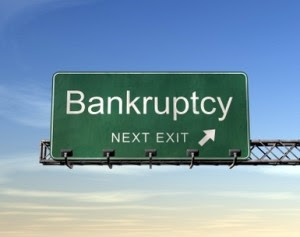The phrase came after Greece was unable to repay its public debt. The then government declared bankruptcy which led to the imposition of International Financial Control on Greece.
The state bankruptcy or bankruptcy of a state is the situation in which the state falls when it is unable to meet its financial obligations.
A common cause of bankruptcy is the situation where government spending is much higher than tax revenues while external borrowing is impossible, as is the issuance of a banknote.
In the case of Cyprus, it is impossible to issue a banknote and the exclusion from the bond markets has left us with only one alternative method, transnational lending. Something that to date has not performed as expected by the state.
This article will try to explain why we have reached the top five of the stoppage of payments and consequently a prescribed bankruptcy.
1. WHAT IS THE NEW ENVIRONMENT?
With the accession of Cyprus to the Eurozone and the automatic adoption of a common currency, the euro, we have automatically handed over the possibility of conducting monetary policy to the European Central Bank. Simply put, Cyprus can no longer set the interest rate at the level it wants, nor can it issue banknotes. Cyprus is a member of the Governing Council of the European Central Bank.
2. THE ROLE OF EVALUATION HOUSES
States have the ability to address markets by issuing bonds to investors in all countries of the world. Therefore, the role of rating agencies is very important in providing potential investors with a thorough analysis of the prospects of the economies. The better the rating for the state, the lower the cost of borrowing for the country. On the contrary, a bad rating means higher borrowing costs and, in essence, exclusion from bond purchases.
3. WAS OUR EXCLUSION FROM THE MARKETS PREDICTABLE?
The warnings from the rating agencies started to be made in 2009 when they had indicated to us that the Cypriot economy needed structural changes. The government stalled to take action (even today the government refuses to take substantial measures to rectify the structural problems of the economy) until the rating agencies downgraded the Cypriot economy.
As a result, borrowing costs rose to 2011% in May 17, which also meant our exclusion from bond markets. Although warnings of further downgrades continued, the government, in consultation with the unions, did not take any substantial action to actually reduce public spending.
4. GREEK DEBT CUTTING - THE GOVERNMENT
MONITORED WITH INDEPENDENCE
In our course for the haircut of Greek bonds, the Cypriot economy further degraded to the "garbage" category. Our side was caught unprepared and did not protect our banking system from the haircut of Greek bonds with the result that the Cypriot banks lost € 4 billion. It should be mentioned here that Greece has secured € 48 billion in aid for its own banks.
5. INTEGRATION IN THE MECHANISM
With these data, Cyprus should apply for membership in the Support Mechanism from November 2011. With a bank loss of € 4 billion and our exclusion from the markets, what else did we hope for?
6. THE RUSSIAN LOAN
Instead of joining the European Support Mechanism in November 2011, we preferred the Russian Support Mechanism. We secured a loan of € 2,5 billion with an interest rate of 4,5% (the interest rate of the Support Mechanism was then € 2,5%). The financing needs for 2012 were € 3,2 billion, and therefore the Russian loan was not enough.
Furthermore, the need for capital adequacy of our banks until June 30, 2012 formed a very predictable scenario. In July 2012, we would either secure a new loan from Russia or China or seek assistance from the Mechanism. Given the inability to secure a transnational loan, the government requested the assistance of the Support Mechanism, a process that is already underway.
7. AMATEUR HANDLING
The suspension of payments by the government has been predictable since January 2012 but no provision has been made to secure the necessary resources.
If the state's plan was to seize the pension funds of employees in the semi-governmental organizations, this does not seem to work out for them and so the stoppage of payments is inevitable, unless urgent assistance is requested from the Mechanism.
8. WHAT'S CONTINUED?
The arrival of the Troika in Cyprus has left a first taste of their intentions. They are looking for radical solutions to our structural problems.
My estimate is that the amount of aid that the Cypriot economy will need will reach € 20 billion. Through this environment, our proclaimed red lines may be violated.
What is certain is that all issues will be put on the table beyond the 7 suggestions from the European Commission. Translating the suggestions we can conclude that the ATA will accept major adjustments as the retirement limit is also a candidate for changes. The immediacy of the measures that will be taken leaves no room for VAT. to remain at its current levels, further targeting of social benefits becomes more necessary than ever, but what will provoke the most reactions will be the suggestion of cuts in the state payroll.
9. ACCOUNTING IN ORDINARY MAN
The arrival of the Troika in Cyprus for the second time will expose the great problems of the Cypriot economy.
Unfortunately, he is the simple man who will be called upon to pay the billions of the banking sector. He is the simple man who today pays the VAT increase. to 17%, the increase in VAT. in food and medicine.
He is mostly the simple man who will pay for the new big scandal of the banks' securities.
It is the 40 unemployed who today are experiencing the effects of an economic policy that has driven a country from rooftops and the prosperity and high standard of living of its citizens to social groceries and bankruptcy.
Giannakis Lazarou is the District Secretary of DISY Paphos

